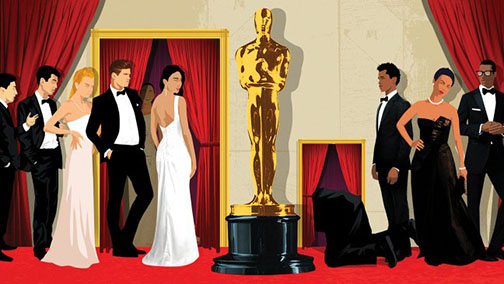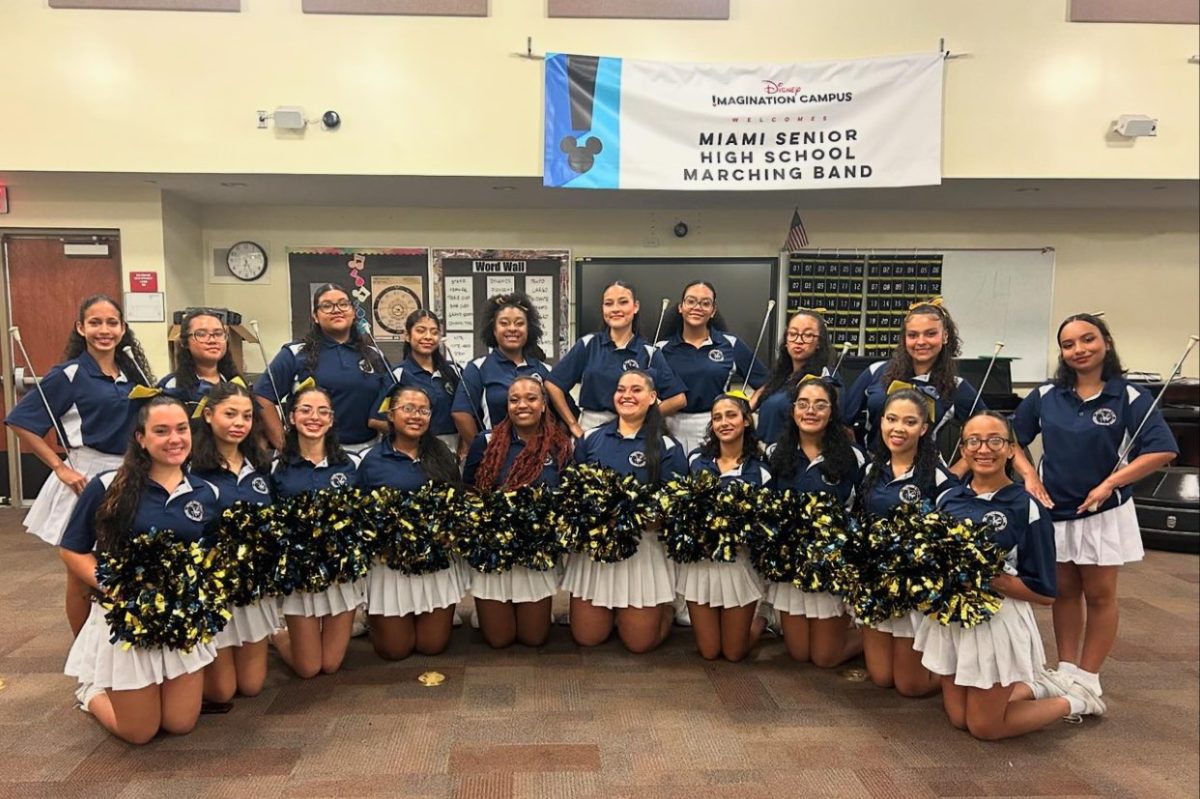No Sky for Colored Stars

Source: http://www.hollywoodreporter.com/news/oscarssowhite-why-black-films-have-859205
March 12, 2018
In movies, the Arabic character plays the terrorist that plants a bomb; the African-American character is portrayed as a “thug”; the Latina is played as a feisty, overly sensual woman or the maid that doesn’t speak English.
Stereotypes in the media
Stereotypes are something people encounter every day; however, the same stereotypes are amplified by the media. “Black characters are seen as poor, ‘ratchet’, or ‘ghetto.’ Meanwhile, white characters are written as rich, elegant, and very polite,” said sophomore D’Andre Johnson. He also stated that stereotypes are common in real life too. “Since I’m black,” he said, “people don’t expect me to be articulate, and I know people have those preconceived notions because of movies and TV shows.”
Senior Diana Aleman said, “Viewers are very easily influenced by what they watch and think that’s how minorities act and look like when it’s not.”
“Stereotypes are very common in the movie and TV industry,” said drama teacher Ms. Cote, “but I know it is for entertainment, so I do not get offended easily.”
TV Production teacher, Dr. Underwood said, “Being portrayed in a stereotypical manner can certainly have a negative influence on a person’s psyche. Having worked with minority students and a variety of diverse people in education, athletics, and colleagues around the world, I have a difficult time seeing many of them portrayed in a negative manner.”
What is representation and why is it so important?
Many people began thinking about media representation in 2015, when the #OscarsSoWhite scandal took the internet by storm. April Reign, the activist who launched the movement, found the lack of diversity in the nominations appalling. In the article titled “Meet April Reign, The Activist Who Created #OscarsSoWhite”, Reign told the Huffington Post, “My goal was just to have the conversation and push the dialogue further.”
Media representation, by definition, means the way in which the media portrays particular groups and communities. To others, it means much more than that. “Seeing a successful public figure helps you become more confident in who you are and where you’re from,” said senior Deniz Dagli, who used to be ashamed of her Muslim culture because of the comments and images that the media portrayed of Muslim people.
Ms. Cote adds,“Representation leads the audience to empathize with characters as well as give minority groups a voice in society.”
Senior Brianna Rodgers stated it’s necessary to grow up seeing people who are like you (besides family). “Representation means not second-guessing whether or not you’re part of your race, gender, or ethnic group because you rarely see them in the media,” she said.
The White Men’s Club
The lack of diversity in Hollywood also can be seen through gender and sexual orientation. In a study titled Inclusion or Invisibility? conducted in 2016 by the University of Southern California <http://annenberg.usc.edu/sites/default/files/2017/04/07/MDSCI_CARD_Report_FINAL_Exec_Summary.pdf>, researchers examined studio films and scripted TV shows released from August 2014 throughout August 2015. Across the 11,306 speaking characters examined, 66.5% were male and 33.5% were female even though women represent just over half the population in America. There were only 229 LGBT speaking characters.
Unsurprisingly, all the characters were written and directed by white men since women make up only 3% of film directors and 10% of film writers. Meanwhile 13% of directors as a whole were nonwhite. Researchers call this an “epidemic of invisibility” for all minorities, both onscreen and behind the scenes.
Does the media do a good job at representing minorities?
Many Miami High students do not feel accurately represented in movies or television shows. Brianna Rodgers said, “The media does a good job at portraying minorities as the stereotypes they know. It really offends me that the media portrays black women as mistresses and pieces of property.”
On the other hand, she did feel represented by the character Nola Darling from Netflix’s original show She’s Gotta Have It. “It showed a black woman who defines who she is on her own, and it showed we’re not all one-sided.”
English teacher Ms. Guerra stated, “If there is representation, minorities either get killed off or have very minor roles.” However, she, like many other Hispanics, feels represented by Gina Rodriguez’s character in Jane the Virgin. “She has that atypical Hispanic family in Miami I feel very identified with,” she said.





Valentina • Apr 12, 2018 at 6:51 am
This is such a great article that says the truth about the entertainment industry and society, in general. I am a part of the entertainment industry myself, so I appreciate all of these facts, statistics, & comments being acknowledged. Great work!
Pablo Hernandez • Mar 13, 2018 at 11:00 pm
GREAT ARTICLE LOVE IT! EVERYONE SHOULD READ STUFF LIKE THIS IN HIGH SCHOOL, KEEP IT UP!
Barbara Batista • Mar 13, 2018 at 8:22 pm
Felicidades Clarita!! Un abrazo
luis garcia • Mar 13, 2018 at 10:51 am
Excellent,, Congrat Ckara